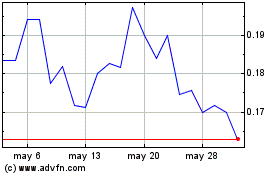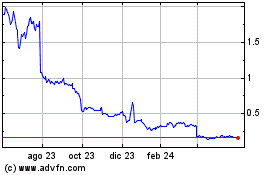Tonix Pharmaceuticals Holding Corp. (Nasdaq: TNXP) (Tonix or the
Company), today announced the submission of a New Drug Application
(NDA) to the U.S. Food and Drug Administration (FDA)
for TNX-102 SL (cyclobenzaprine HCl sublingual tablets) 5.6
mg, a non-opioid, centrally-acting analgesic that showed
statistically significant reduction in the chronic, widespread pain
associated with fibromyalgia in two Phase 3 studies and was
generally well tolerated. TNX-102 SL was granted Fast Track
designation for fibromyalgia by the FDA in July of 2024. Fast Track
is designed to expedite FDA review of important new drugs to treat
serious conditions and fill an unmet medical need.
“With the submission of this NDA, Tonix has
achieved a critical milestone in potentially bringing a new
first-line treatment option to the large and dissatisfied
fibromyalgia population that has not had a new pharmacotherapy in
over 15 years,” said Seth Lederman, M.D., Chief Executive Officer
of Tonix Pharmaceuticals. “TNX-102 SL would be the first member of
a new class of medicines for treating fibromyalgia. TNX-102 SL was
designed and developed as a bedtime treatment to be taken daily on
a chronic basis. Tonix believes bedtime TNX-102 SL relieves
fibromyalgia pain by targeting the non-restorative sleep that is
characteristic of fibromyalgia.”
The NDA submission is supported by data from two
14-week double-blind, randomized, placebo-controlled Phase 3
clinical trials evaluating the safety and efficacy of TNX-102 SL
5.6 mg as a bedtime treatment for fibromyalgia. The prior Phase 3
RELIEF trial of TNX-102 SL in fibromyalgia, completed in December
2020, met its pre-specified primary endpoint of significantly
reducing daily pain compared to placebo (p=0.010). In the
confirmatory Phase 3 RESILIENT study in fibromyalgia, completed in
December 2023, TNX-102 SL met the pre-specified primary endpoint of
significantly reducing daily pain compared to placebo (p =0.00005).
In both trials, TNX-102 SL was generally well tolerated with an
adverse event profile comparable to prior studies and with no new
safety signals observed. In both pivotal studies, the most common
treatment-emergent adverse event was tongue or mouth numbness at
the administration site, which was temporally related to dosing,
self-limited, never rated as severe, and rarely led to study
discontinuation (one participant in each study). Therefore, Tonix
believes the submitted dossier contains the requisite safety and
efficacy data from two adequate and well-controlled studies to
support NDA submission.
“Despite three FDA-approved medications,
representing two different classes of medicines, there remains a
need for new treatment options for fibromyalgia patients,”
commented Gregory Sullivan, M.D., Chief Medical Officer of Tonix
Pharmaceuticals. “If approved by FDA, TNX-102 SL would be the first
of a new tricyclic class of medicines for treating fibromyalgia.
The existing FDA-approved drugs for fibromyalgia include the
gabapentinoid class, represented by Pfizer’s Lyrica® (pregabalin)
approved in 2008, and the SNRI class, represented by Lilly’s
Cymbalta® (duloxetine) and AbbVie’s Savella® (milnacipran) approved
in 2007 and 2009, respectively. The TNX-102 SL tablet is based on a
proprietary eutectic formulation of cyclobenzaprine HCl and
mannitol that provides a stable product which dissolves rapidly and
efficiently delivers cyclobenzaprine by the transmucosal route into
the bloodstream. I would like to thank all the participants in our
clinical trials, as well as the trial investigators and staff, who
worked together over many years to help make this important
milestone possible.”
The FDA typically has a 60-day filing review
period to determine whether the submitted NDA is complete and
accepted for review. If FDA accepts the NDA for review, the Company
expects a 2025 date for an FDA decision on approval, based on the
Prescription Drug User Fee Act (PDUFA).
About Fibromyalgia
Fibromyalgia is a common chronic pain disorder
that is understood to result from amplified sensory and pain
signaling within the central nervous system, called central
sensitization. Brain imaging studies have localized the functional
disorder to the brain’s insular and anterior cingulate cortex.
Fibromyalgia afflicts more than 10 million adults in the U.S., the
majority of whom are women. Symptoms of fibromyalgia include
chronic widespread pain, non-restorative sleep, fatigue, and brain
fog (or cognitive dysfunction). Other associated symptoms include
mood disturbances, including depression, anxiety, headaches, and
abdominal pain or cramps. Individuals suffering from fibromyalgia
often struggle with their daily activities, have impaired quality
of life, and frequently are disabled. Physicians and patients
report common dissatisfaction with currently marketed products.
Fibromyalgia is now recognized as the prototypic nociplastic
syndrome. Nociplastic pain is the third primary type of pain in
addition to nociceptive pain and neuropathic pain. Many patients
present with pain syndromes that are a spectrum of mixtures of the
three primary types of pain. Nociplastic syndromes are associated
with central and peripheral sensitization. Fibromyalgia can occur
without any identifiable precipitating event. However, many
fibromyalgia cases follow one or more precipitating event(s)
including: chronic nociceptive or neuropathic pain states; recovery
from an infectious illness; a cancer diagnosis or cancer treatment;
a metabolic or endocrine stress; or a traumatic event. In the cases
of recovery from an infectious illness, fibromyalgia is considered
an Infection-Associated Chronic Condition. In addition to
fibromyalgia cases associated with other conditions or stressors,
the U.S. National Academies of Sciences, Engineering, and Medicine,
has concluded that fibromyalgia is a diagnosable condition that
occurs after recovery from COVID-19 in the context of Long COVID.
Fibromyalgia is also recognized as a Chronic Overlapping Pain
Condition, due to shared symptoms with chronic fatigue
syndrome/myalgic encephalomyelitis (CFS/ME), irritable bowel
syndrome, endometriosis, low back pain, post-concussive syndrome
(also known as mild traumatic brain injury), chronic Lyme Disease,
chronic diabetic neuropathy and chronic post-herpetic
neuralgia.
About TNX-102 SL
TNX-102 SL is a centrally acting, non-opioid
bedtime investigational drug, designed for chronic use. The tablet
is a patented sublingual formulation of cyclobenzaprine
hydrochloride developed for bedtime dosing for the management of
fibromyalgia. Cyclobenzaprine interacts as an antagonist at four
different receptors in the brain: serotonergic-5-HT2A,
adrenergic-α1, histaminergic-H1, and muscarinic-M1-cholinergic
receptors. Together, these interactions are believed to target the
non-restorative sleep characteristic of fibromyalgia that was
identified by Professor Harvey Moldofsky in 1975. Cyclobenzaprine
is not associated with risk of addiction or dependence. The TNX-102
SL tablet is based on a eutectic formation of cyclobenzaprine HCl
and mannitol that provides a stable product which dissolves rapidly
and delivers cyclobenzaprine by the transmucosal route efficiently
into the bloodstream. The eutectic protects cyclobenzaprine HCl
from interacting with the basifying agent that is also part of the
formulation and required for efficient transmucosal absorption.
Patents based on TNX-102 SL’s eutectic composition and its
properties have issued in the U.S., E.U., Japan, China and many
other jurisdictions around the world and provide market protection
into 2034. The European Patent Office’s Opposition Division
maintained Tonix’s European Patent EP 2 968 992 in unamended form
after an Opposition was filed against it by a Sandoz subsidiary,
Hexal AG. Hexal AG did not appeal that decision. The formulation of
TNX-102 SL was designed specifically for sublingual administration
and transmucosal absorption for bedtime dosing to target disturbed
sleep, while reducing the risk of daytime somnolence. Clinical
pharmacokinetic studies indicated that the addition of a basifying
agent was necessary for efficient transmucosal absorption which
results in higher levels of exposure during the first 2 hours after
dosing and in deceased levels of the long-lived active metabolite,
norcyclobenzaprine in both single dose and multiple dose studies,
consistent with bypassing first pass hepatic metabolism. At steady
state after 20 days of dosing TNX-102 SL, the dynamic peak level of
cyclobenzaprine is higher than the background level of
norcyclobenzaprine. In contrast, after 20 days of dosing oral
cyclobenzaprine, the simulated peak level of cyclobenzaprine is
lower than the simulated background level of
norcyclobenzaprine.
Tonix Pharmaceuticals Holding
Corp.*
Tonix is a fully integrated biopharmaceutical
company focused on transforming therapies for pain management
and modernizing solutions for public health challenges. Tonix’s
development portfolio is focused on central nervous system (CNS)
disorders, and its priority is to progress TNX-102 SL, a product
candidate for which an NDA was submitted based on two statistically
significant Phase 3 studies for the management of fibromyalgia. The
FDA has granted Fast Track designation to TNX-102 SL for the
management of fibromyalgia. TNX-102 SL is also being developed to
treat acute stress reaction and acute stress disorder under a
Physician-Initiated IND at the University of North Carolina in the
OASIS study funded by the U.S. Department of Defense (DoD). Tonix’s
CNS portfolio includes TNX-1300 (cocaine esterase), a biologic in
Phase 2 development designed to treat cocaine intoxication that has
FDA Breakthrough Therapy designation and its development is
supported by a grant from the U.S. National Institude of Drug Abuse
and Addiction. Tonix’s immunology development portfolio consists of
biologics to address organ transplant rejection, autoimmunity and
cancer, including TNX-1500, which is an Fc-modified humanized
monoclonal antibody targeting CD40-ligand (CD40L or CD154) being
developed for the prevention of allograft rejection and for the
treatment of autoimmune diseases. Tonix also has product candidates
in development in the areas of rare disease, including TNX-2900 for
Prader-Willi syndrome, and infectious disease, including a vaccine
for mpox, TNX-801. Tonix recently announced a contract with the
U.S. DoD’s Defense Threat Reduction Agency (DTRA) for up to $34
million over five years to develop TNX-4200, small molecule
broad-spectrum antiviral agents targeting CD45 for the prevention
or treatment of infections to improve the medical readiness of
military personnel in biological threat environments. Tonix owns
and operates a state-of-the art infectious disease research
facility in Frederick, MD. Tonix Medicines, our commercial
subsidiary, markets Zembrace® SymTouch® (sumatriptan injection) 3
mg and Tosymra® (sumatriptan nasal spray) 10 mg for the treatment
of acute migraine with or without aura in adults.
* Tonix’s product development candidates are
investigational new drugs or biologics; their efficacy and safety
have not been established and have not been approved for any
indication.
Zembrace SymTouch and Tosymra are registered
trademarks of Tonix Medicines. All other marks are property of
their respective owners.
This press release and further information about
Tonix can be found at www.tonixpharma.com.
Forward Looking Statements
Certain statements in this press release are
forward-looking within the meaning of the Private Securities
Litigation Reform Act of 1995. These statements may be identified
by the use of forward-looking words such as “anticipate,”
“believe,” “forecast,” “estimate,” “expect,” and “intend,” among
others. These forward-looking statements are based on Tonix's
current expectations and actual results could differ materially.
There are a number of factors that could cause actual events to
differ materially from those indicated by such forward-looking
statements. These factors include, but are not limited to, risks
related to the failure to obtain FDA clearances or approvals and
noncompliance with FDA regulations; risks related to the failure to
successfully market any of our products; risks related to the
timing and progress of clinical development of our product
candidates; our need for additional financing; uncertainties of
patent protection and litigation; uncertainties of government or
third party payor reimbursement; limited research and development
efforts and dependence upon third parties; and substantial
competition. As with any pharmaceutical under development, there
are significant risks in the development, regulatory approval and
commercialization of new products. Tonix does not undertake an
obligation to update or revise any forward-looking statement.
Investors should read the risk factors set forth in the Annual
Report on Form 10-K for the year ended December 31, 2023, as filed
with the Securities and Exchange Commission (the “SEC”) on April 1,
2024, and periodic reports filed with the SEC on or after the date
thereof. All of Tonix's forward-looking statements are expressly
qualified by all such risk factors and other cautionary statements.
The information set forth herein speaks only as of the date
thereof.
Investor Contact
Jessica MorrisTonix
Pharmaceuticalsinvestor.relations@tonixpharma.com (862)
904-8182
Peter VozzoICR Westwickepeter.vozzo@westwicke.com (443)
213-0505
Media Contact
Ray JordanPutnam Insightsray@putnaminsights.com(949)
245-5432
Tonix Pharmaceuticals (NASDAQ:TNXP)
Gráfica de Acción Histórica
De Dic 2024 a Ene 2025

Tonix Pharmaceuticals (NASDAQ:TNXP)
Gráfica de Acción Histórica
De Ene 2024 a Ene 2025
